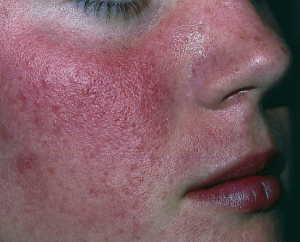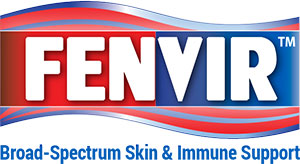 Probiotics have become a popular way to helping maintain good digestive health. Probitics, found in some yogurts or as daily supplements, are live, “friendly” bacteria that may benefit a person’s health. Now, research is finding that the benefits of probiotics may extend beyond the digestive tract to the skin. Skin prone to acne or rosacea showed improvement with daily probiotic use in a recent study.
Probiotics have become a popular way to helping maintain good digestive health. Probitics, found in some yogurts or as daily supplements, are live, “friendly” bacteria that may benefit a person’s health. Now, research is finding that the benefits of probiotics may extend beyond the digestive tract to the skin. Skin prone to acne or rosacea showed improvement with daily probiotic use in a recent study.
Most bacterial cells that live inside and on the body are harmless, and studies show that, in fact, they can be extremely beneficial to the body’s normal functioning. Whitney P. Bowe, MD, FAAD, a board-certified dermatologist and clinical assistant professor of dermatology at Icahn School of Medicine at Mt. Sinai Medical Center in New York noted “ While the science of how probiotics can work to interfere with the development of acne and rosacea is very complex, researchers are studying how this type of healthy bacteria applied topically to the skin or taken orally can benefit these skin conditions.”
In patients with acne and rosacea, living microorganisms on the skin are seen as foreign invaders by the body’s immune system. The immune system reacts by trying to counter act this potential threat resulting in the inflammation, redness, or bumps common in these skin conditions.
The study found that probiotics applied topically on the skin’s surface prevented the skin cells from seeing the bad bacteria and parasites that can cause this immune system response. This is known as “bacterial interference”. Probiotics protected the skin and interfered with the ability of bacteria and parasites to provoke an immune reaction.
Dr. Bowe explained “Sometimes the substances produced by probiotics have antimicrobial properties, meaning they can create holes in bad bacteria and kill the bugs. Similar to the way antibiotics work in the treatment of acne and rosacea, probiotics can help fight harmful bugs from triggering inflammation.”
Researchers now are testing probiotics to determine which ones make the substances that can kill bad bacteria. Dr. Bowe predicts that the strains could be identified in the very near future and will then be marketed in products for their antimicrobial properties.
“While more studies are needed to identify the most beneficial aspects of probiotics and determine whether topical or oral probotics yield the best results, I think we can expect to see some cutting-edge probiotic products for acne and rosacea in the near future,” said Dr. Bowe. “Until then, I would recommend that patients with acne or rosacea see a dermatologist to talk about adding foods with live active cultures, such as yogurt, to their diets.. Although I don’t envision probiotics ever being used as a stand-alone treatment for acne or rosacea, they could be used as an effective combination therapy with prescription medications or over-the-counter topical treatments.”
[aio_button align=”none” animation=”swing” color=”black” size=”small” icon=”none” text=”BUY NOW” relationship=”dofollow” url=”http://www.fenvir.com/order-now”] [aio_button align=”none” animation=”swing” color=”red” size=”small” icon=”none” text=”Learn More” relationship=”dofollow” url=”http://www.fenvir.com/”]

